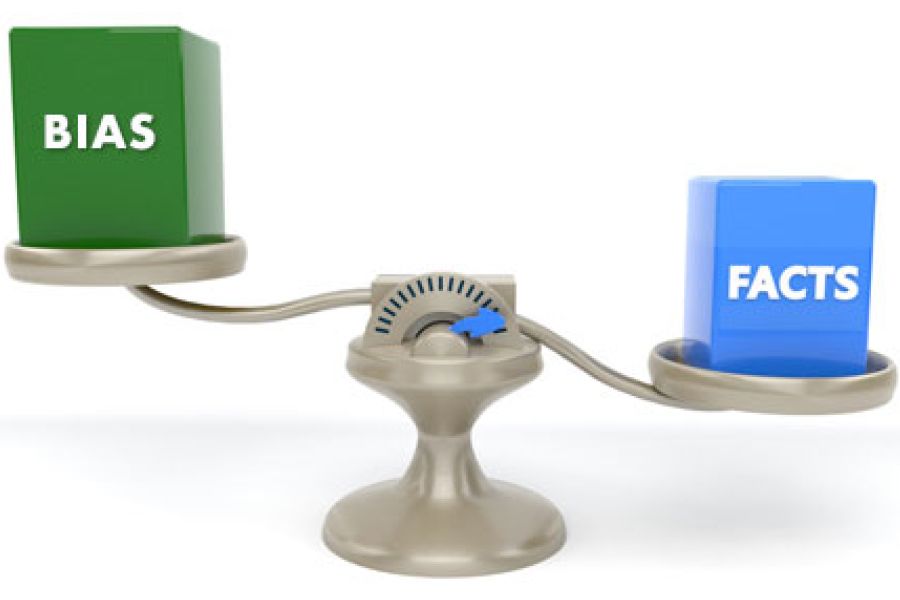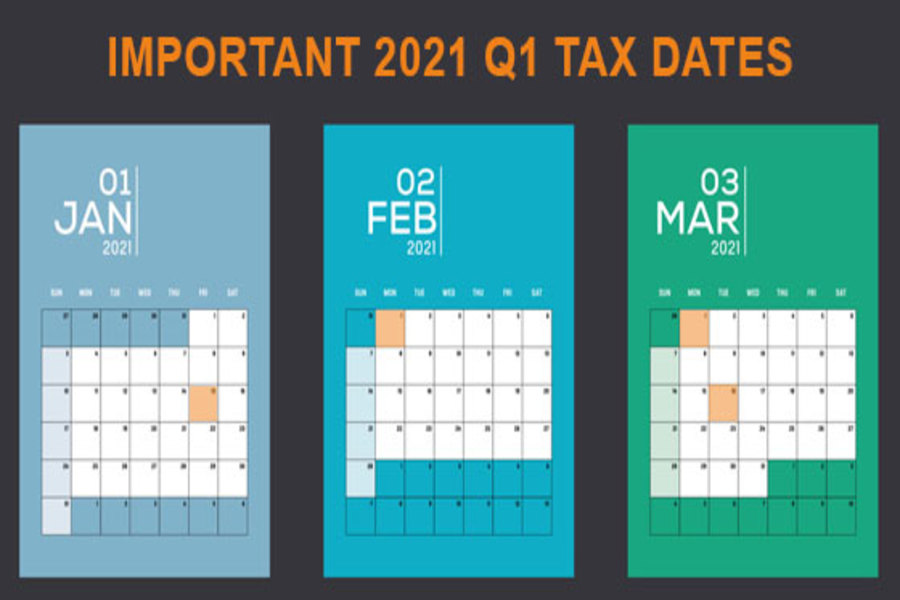The Consolidated Appropriations Act, 2021 (CAA 2021), signed into law by President Trump on 12/27/20, includes the Taxpayer Certainty and Disaster Tax Relief Act of 2020 (TCDTRA) which extends and expands upon the Employee Retention Credit (ERC) provided by the CARES Act. Well, that's a mouthful! But whereas most of the COVID-19 related payroll tax provisions have yielded cash flow enhancing mechanisms that were just timing differences (i.e. no actual reduction in taxes due), there's some real money on the table with the newly modified, expanded, and extended Employee Retention Credit. INTERACTION WITH PPP LOANS Previously under the CARES Act New law under TCDTRA PPP loan recipients were not eligible to claim the ERC PPP loan recipients are now eligible to claim the ERC PPP Loan Forgiven? No Double Benefit PPP Loan...

The best choice of entity can affect your business in several ways, including the amount of your tax bill. In some cases, businesses decide to switch from one entity type to another. Although S corporations can provide substantial tax benefits over C corporations in some circumstances, there are potentially costly tax issues that you should assess before making the decision to convert from a C corporation to an S corporation. Here are four issues to consider: (1) LIFO inventories C corporations that use last-in, first-out (LIFO) inventories must pay tax on the benefits they derived by using LIFO if they convert to S corporations. The tax can be spread over four years. This cost must be weighed against the potential tax gains from converting to S status. (2) Built-in...
For most retailers, December is the most profitable season of the year. However, customer returns in January can cut deeply into December revenues — particularly if the returns are fraudulent. U.S. retailers suffer annual losses of $18.4 billion from fraudulent returns, according to data analytics company Appriss and the National Retail Federation (NRF). And as antifraud technology company Signifyd has found, the pandemic is encouraging higher retail return rates — as much as 80% higher than before COVID-19 hit. Such a shift is likely to mean even more fraud. Old dog, new tricks Return fraud isn’t new. Dishonest customers have long “returned” items they stole or purchased elsewhere for less to stores willing to issue full cash refunds. But growth in online sales has magnified return fraud...
There’s a new IRS form for business taxpayers that pay or receive certain types of nonemployee compensation and it must be furnished to most recipients by February 1, 2021. After sending the forms to recipients, taxpayers must file the forms with the IRS by March 1 (March 31 if filing electronically). The requirement begins with forms for tax year 2020. Payers must complete Form 1099-NEC, “Nonemployee Compensation,” to report any payment of $600 or more to a recipient. February 1 is also the deadline for furnishing Form 1099-MISC, “Miscellaneous Income,” to report certain other payments to recipients. If your business is using Form 1099-MISC to report amounts in box 8, “substitute payments in lieu of dividends or interest,” or box 10, “gross proceeds paid to an attorney,” there’s an exception to...
The Small Business Administration (SBA) announced that the Paycheck Protection Program (PPP) reopened the week of January 11. If you’re fortunate to get a PPP loan to help during the COVID-19 crisis (or you received one last year), you may wonder about the PPP loan tax consequences. Background on the loans In March of 2020, the CARES Act became law. It authorized the SBA to make loans to qualified businesses under certain circumstances. The law established the PPP, which provided up to 24 weeks of cash-flow assistance through 100% federally guaranteed loans to eligible recipients. Taxpayers could apply to have the loans forgiven to the extent their proceeds were used to maintain payroll during the COVID-19 pandemic and to cover certain other expenses. At the end of 2020,...
Against the odds, savings rate rises. (This is Blog Post #964)...
Despite our best intentions, almost everyone brings some bias to human interactions — even business owners and executives investigating fraud. Sometimes bias can lead to the right conclusion. However, bias can also compromise an investigation’s integrity. If you suspect fraud in your organization and decide to investigate yourself, be sure to guard against bias that may lead you to the wrong culprit or into legal trouble. Banish stereotypes One of the most destructive types of bias is preconceived notions about employees based on their gender, race, ethnicity, religion, sexual orientation and similar personal characteristics. Not only is this type of identity-based bias generally illegal in the workplace, but it can lead to erroneous conclusions regarding an employee’s guilt or innocence. Members of a fraud investigation team should make...
Here are some of the key Q1 2021 tax deadlines affecting businesses and other employers. Keep in mind that this list isn’t all-inclusive, so there may be additional deadlines that apply to you. In addition to the Q1 2021 tax deadlines, contact us to ensure you’re meeting all applicable deadlines and to learn more about the filing requirements. January 15 Pay the final installment of 2020 estimated tax. Farmers and fishermen: Pay estimated tax for 2020. February 1 (The usual deadline of January 31 is a Sunday) File 2020 Forms W-2, “Wage and Tax Statement,” with the Social Security Administration and provide copies to your employees. Provide copies of 2020 Forms 1099-MISC, “Miscellaneous Income," and/or 1099-NEC, "Non-Employee Compensation” to recipients of income from your business (as applicable) where required. File...
Most fraud-prevention guidance advises owners and manager to monitor employees. But what exactly does this mean? Are you legally entitled to monitor employee computer use? What about security cameras in the workspace? Can you search an employee’s desk if you suspect the person is hiding something? The simple answer is that to stay on the right side of the law when fraud is suspected, your business must be careful about invading employee privacy. Their rights Many employment laws apply to employees’ privacy rights. In general, they attempt to balance employers’ interests in minimizing losses and injuries and maximizing production with employees’ interests in being free from intrusion into their private affairs. By adopting and clearly communicating employment policies, your company can, within limits, establish its authority to conduct...
COVID-19 has shut down many businesses, causing widespread furloughs and layoffs. Fortunately, employers that keep workers on their payrolls are eligible for a refundable Employee Retention Tax Credit (ERTC), which was extended and enhanced in the latest law. Background on the credit The CARES Act, enacted in March of 2020, created the ERTC. The credit: Equaled 50% of qualified employee wages paid by an eligible employer in an applicable 2020 calendar quarter, Was subject to an overall wage cap of $10,000 per eligible employee, and Was available to eligible large and small employers. The Consolidated Appropriations Act (CAA), enacted December 27, 2020, extends and greatly enhances the ERTC. Under the CARES Act rules, the credit only covered wages paid between March 13, 2020, and December 31, 2020. The...
- 1
- 2
- 3
- 4
- 5
- 6
- 7
- 8
- 9
- 10
- 11
- 12
- 13
- 14
- 15
- 16
- 17
- 18
- 19
- 20
- 21
- 22
- 23
- 24
- 25
- 26
- 27
- 28
- 29
- 30
- 31
- 32
- 33
- 34
- 35
- 36
- 37
- 38
- 39
- 40
- 41
- 42
- 43
- 44
- 45
- 46
- 47
- 48
- 49
- 50
- 51
- 52
- 53
- 54
- 55
- 56
- 57
- 58
- 59
- 60
- 61
- 62
- 63
- 64
- 65
- 66
- 67
- 68
- 69
- 70
- 71
- 72
- 73
- 74
- 75
- 76
- 77
- 78
- 79
- 80
- 81
- 82
- 83
- 84
- 85
- 86
- 87
- 88
- 89
- 90
- 91
- 92
- 93
- 94
- 95
- 96
- 97
- 98
- 99
- 100
- 101
- 102
- 103
- 104
- 105
- 106
- 107
- 108
- 109
- 110
- 111
- 112
- 113
- 114
- 115
- 116
- 117
- 118
- 119
- 120
- 121
- 122
- 123
- 124
- 125
- 126
- 127
- 128
- 129
- 130
- 131
- 132
- 133
- 134
- 135
- 136











